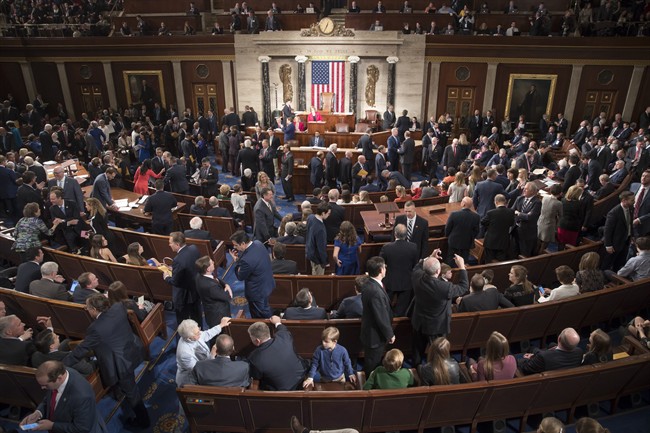U.S. House Republicans on Friday (January 13) won passage of a measure starting the process of dismantling Obamacare, despite concerns about not having a ready replacement and the potential financial cost of repealing President Barack Obama’s landmark health insurance law.

The House voted 227-198 to instruct committees to draft legislation by a target date of Jan. 27 that would repeal the 2010 Affordable Health Care Act, often called Obamacare. The Senate approved the same measure early Thursday.
No Democrats supported the initiative.
READ MORE: U.S. House Republicans set to vote on repealing Obamacare
With this vote, Republicans began delivering on their promise to end Obamacare, which also was a campaign promise of President-elect Donald Trump.

The program, which expanded health coverage to some 20 million people, has been plagued by increases in insurance premiums and deductibles and by some large insurers leaving the system.
The resolution passed by the House and Senate does not need presidential approval, since it is part of an internal congressional budget process. But once the Obamacare repeal legislation is drafted, both chambers will need to approve it, and a presidential signature will be required.
By that time, Trump will have been sworn in as president and he has urged Congress to act quickly to repeal and replace the Democratic program.

Get daily National news
Obamacare was enacted nearly seven years ago – over Republican objections – in an effort to expand coverage and give new protections for people with pre-existing health conditions and other barriers that left them without insurance.
In the past few years, the House has voted more than 60 times to repeal or alter Obamacare but Republicans had no hope a repeal would become law as long as Obama was president.

Trump applauded Congress’ efforts with a Friday morning tweet saying, “The ‘Unaffordable’ Care Act will soon be history!” The president-elect, who takes office on Jan. 20, pressed lawmakers this week to repeal and replace it “essentially simultaneously.”
Some Republicans have expressed concern about starting a repeal before agreeing on how to replace provisions of the complicated and far-reaching law.
READ MORE: Donald Trump to Republicans: don’t just repeal Obamacare, replace it now
The nonpartisan Committee for a Responsible Federal Budget estimated repealing Obama’s signature health insurance law entirely would cost roughly $350 billion over 10 years.
Republicans say a good replacement would give states more control of a healthcare program and provide more stability on health insurance premiums.












Comments